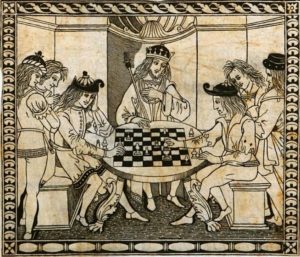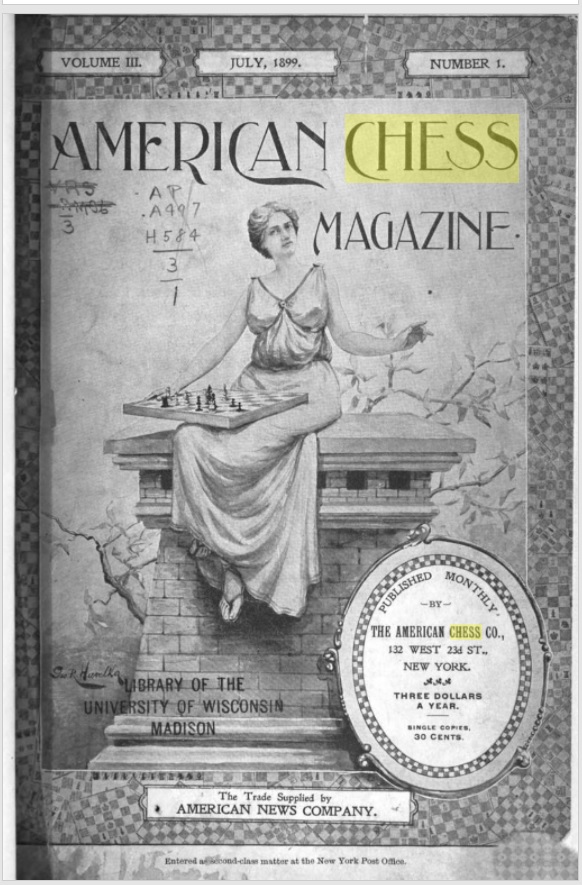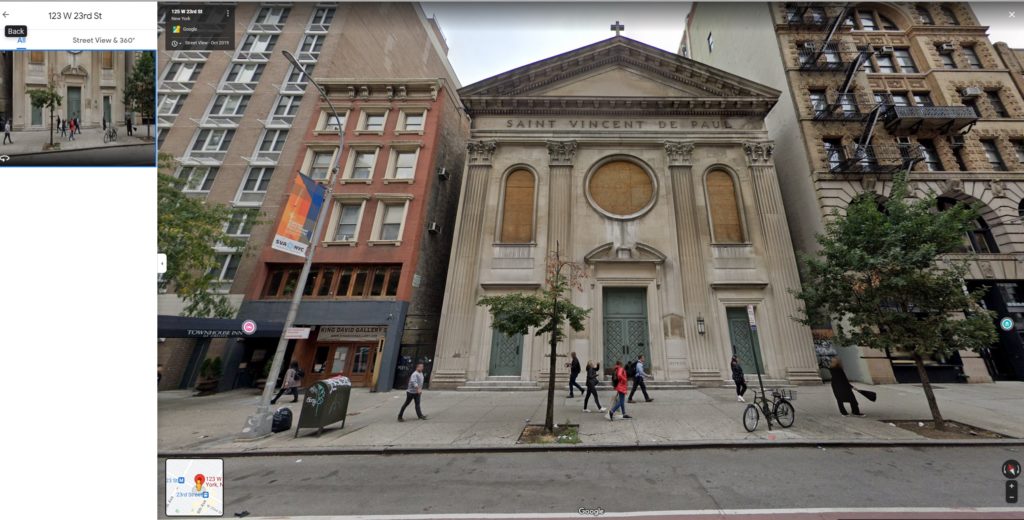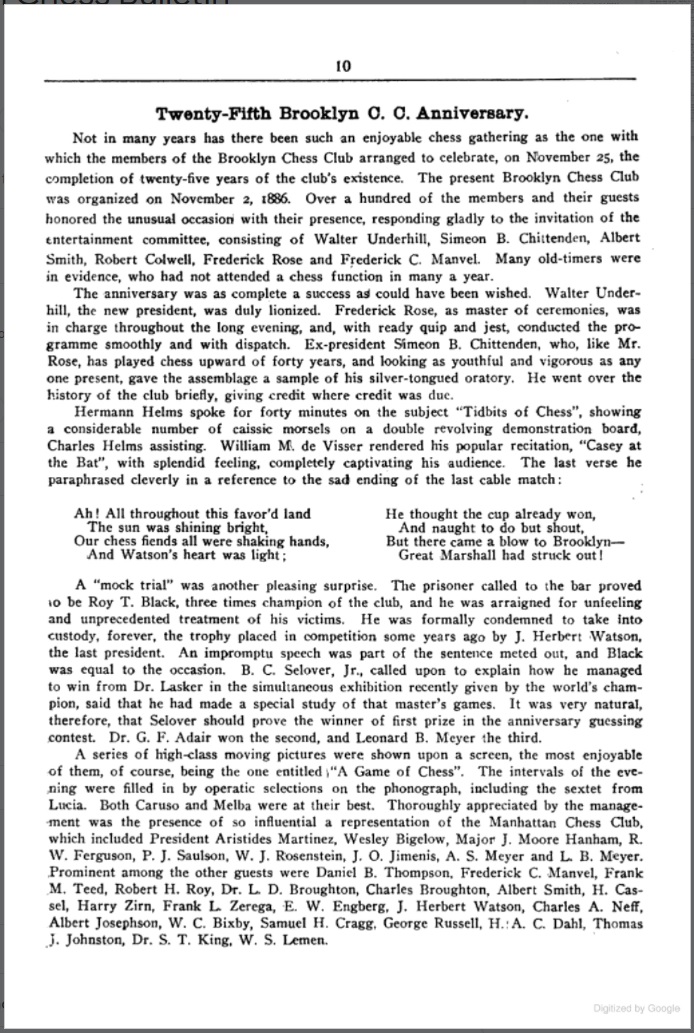A change of pace! Did you know that the Fourth Lateran Council issued a Canon against Priests playing chess? They thought it was a game of chance. They obviously weren't chess players!
From Fr Z's Blog
Did you know that Canon 16 of the Fourth Council of the Lateran in 1215 forbade priests from playing chess? It was considered a game of chance (clearly by non-chessplayers). That canon also forbade participation of clerics at “the performances of mimics and buffoons” (“walking together”?).
On the other hand, in 1550 St. Teresa of Avila used chess imagery in her spiritual writings. The Church in Spain proclaimed her patron saint of chess players.
I could see having a chess society named after St. Teresa.
A good friend just sent a note with an article in the Los Angeles Herald of 25 June 1899:
PLAYS CHESS WITH THE POPE For Twenty One Years They Have Been Antagonists
In his days of Illness Leo XIII finds his chief amusement in chess. His regular partner is Fr Giulio, a Dominican monk of great wisdom and of sunny temperament, who holds the position of master of games in the Vatican. Fr Giulio was a friend of Leo’s predecessor, Pope Pio Nono, who gave him room and board in the papal palace for life on condition that he learn to play billiards. Pio adopted billiard playing as a means to get rid of much superfluous flesh. At the same time he gave up chess, in which Fr Giulio was an expert, for chess helped to make him fat. Pope Leo has never been bothered with too much flesh, and banished his predecessor’s billiard table to the servants’ quarters when he took up the reins. However, he gladly accepted Giulio’s services as a partner in chess. Pope and monk have now been playing against each other for over 21 years, yet it Is undecided which of the two is the other’s superior. In one respect Leo certainly is, for he never loses his temper together with the game. Fr Giulio, on the other hand, is so passionate a player that he is apt to become morose and get out of patience if the holy father checkmates him. Then Leo has sometimes to speak as Pope — not as a mere friend — to bring the usually even-tempered priest to his senses. When Leo, shortly after his enthronization, introduced the royal game as a regular pastime in the Vatican, some ascetic Cardinals raised an outcry. Invoking the decision of the Council of Treves, which forbade priests to play chess. The Pope listened to these fanatics with a superior smile on his lips. “I know all you want to say,” he remarked. “and I tell you that Bishop Petrus, who first thundered against chess, and the Treves Council, were both mistaken. The latter’s decision soon fell into disuse, and my namesake, Leo X, openly averred that there was no harm in chess playing. Even the fact that Martin Luther, his adversary, was a passionate chess player, made no difference.

In fact, both the Pope and Luther thundered against games of chance, while practicing chess.” Pope Leo has in his private library a valuable collection of books on chess written by renowned ecclesiastics. Among them is a prayer book by Jacobus de Cessolis, published in the year 1300, containing a number of smart sermons on chess playing. “Rules for Chess” were published by the Spanish Bishop, Ruy Lopez, in 1561, and by the Italian priests Pietro Carrera and Antonio Das Reves, 1617 and 1647, respectively. — New York Journal.
This is also in American Chess Magazine of July 1899 (Vol. 3, No. 1).
Here’s a fascinating synchronicity, amusing and really sad at the same time.

Note the library it came from and note the address where it was published.
I looked at that address and thought… how do I know that? Then it hit me.
123 W. 23rd in Manhattan is the address of the now closed Church of St. Vincent, where my good friend Fr. Gerald Murray was pastor and where I used to spend a good deal of time. Here’s the street view from Google for that address:

The American Chess Magazine was published at
Jacobus de Cessolis (+c.1322) was the author of Libellus de moribus hominum et officiis nobilium ac popularium super ludo scachorum.
Around 1200, the Bishop of Paris (119-1208), Eudes de Sully (died in 1208), banned chess in Paris to his clergy. He forbade chess sets and chess boards from even being in homes.
Maybe this is the model for the treatment of the Traditional Latin Mass in Paris?
While looking for more on Leo XIII and chess, and also the rumor that John Paul II composed chess problems I stumbled upon this delightful account.
Here’s an account of a meeting of the Brooklyn Chess Club from the 2 Jan 1912, American Chess Bulletin (Vol. 9, No. 1):

Even with operatic selections on the phonograph! Very high tech.
And for you Star Trek fans, with it’s weird chess board, here is “O soave fanciulla” from La Bohème with Caruso and Melba in 1896.
Is it possible that they also heard this recording in Brooklyn?
From 1996-2001 the Taliban made playing chess illegal. If you were caught, the board was burned and you were jailed.
Again, a possible model for Traditionis custodes (to which some are lending the moniker Taurina cacata).
No comments:
Post a Comment
Comments are subject to deletion if they are not germane. I have no problem with a bit of colourful language, but blasphemy or depraved profanity will not be allowed. Attacks on the Catholic Faith will not be tolerated. Comments will be deleted that are republican (Yanks! Note the lower case 'r'!), attacks on the legitimacy of Pope Leo XIV as the Vicar of Christ, the legitimacy of the House of Windsor or of the claims of the Elder Line of the House of France, or attacks on the legitimacy of any of the currently ruling Houses of Europe.